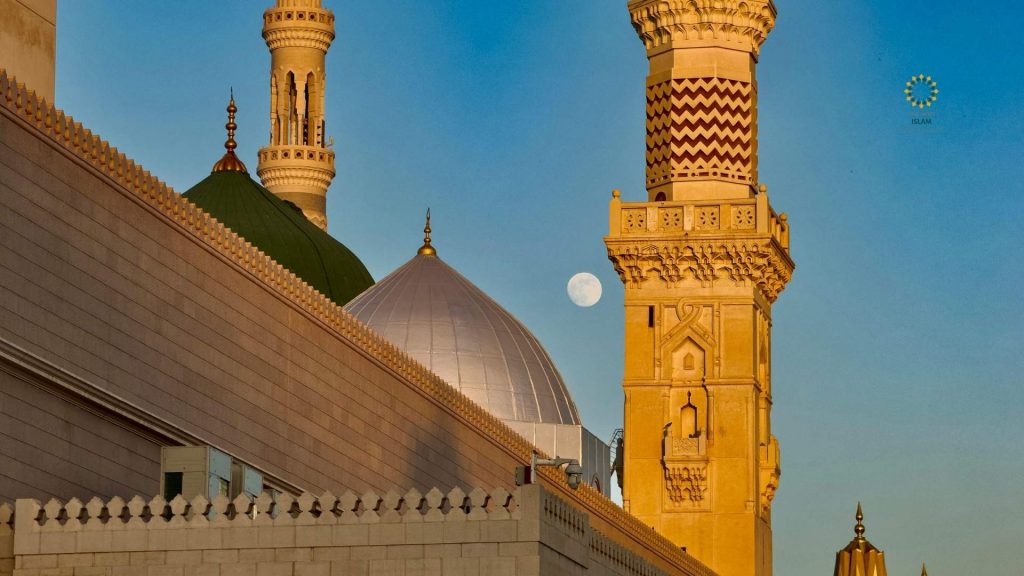History remembers countless world leaders renowned for their conquests, empires, and power. Yet, Prophet Muhammad peace be upon him) stands apart, not due to his armies or power, but because of his unparalleled compassion. Undoubtedly, his leadership was revolutionary because it was built not on fear, but on love and not on domination, but on service. The Holy Qur’an itself encapsulates his mission in one verse:
“And We have not sent you, [O Muhammad], except as a mercy to the worlds.” (21:107)
Prophet Muhammad (PBUH) showed that the greatest leader is not the one who rules over people but the one who wins their hearts. Ultimately, his life remains the most powerful example of how mercy can transform individuals and societies.
Leadership Rooted in Mercy, Not Authority
At a time when leadership was measured by might, the Prophet led through empathy and humility. When the people of Taif mocked and stoned him, he did not retaliate. Instead, he prayed for their guidance. Such restraint and kindness reveal that his vision of leadership was not about enforcing obedience but awakening conscience.
His companions were deeply moved by his gentleness. They said,
“When the Prophet spoke to us, it felt as if he spoke to each heart individually.”
His leadership was not distant, but deeply human and sincere.
Equality and Justice for All
Prophet Muhammad (PBUH) dismantled the rigid class structures of his time. He declared that no Arab is superior to a non-Arab, and no white person is superior to a black person, except by piety. His final sermon remains a timeless declaration of human rights and equality.
In the city-state of Madinah, he established a constitution that gave Jews, Christians, and Muslims equal protection under the law. This early model of social justice made him not just a spiritual guide but a visionary statesman.
Moreover, true compassion is tested in moments of power. When the Prophet returned to Makkah as a victor after years of persecution, he could have sought revenge. Instead, he forgave everyone, saying, “Go, for you are free.” Those who once plotted against him became his followers because of his mercy.
This act of forgiveness turned enemies into allies and hatred into harmony. It demonstrated that compassion is not weakness, but the greatest force for transformation.
Uplifting the Oppressed and the Marginalized
The Prophet championed the rights of those forgotten by society, including women, slaves, orphans, and the poor. He taught that a society is only as strong as how it treats its weakest members. He elevated women’s status through inheritance rights, education, and respect in family life. He appointed Bilal ibn Rabah, a former slave, as the first caller to prayer, symbolizing the equality of all believers.
Every reform he introduced was rooted in compassion and justice, ensuring no one was left unseen or unheard. In this way, Prophet Muhammad (PBUH) didn’t just preach kindness, but he lived it daily. He mended his own clothes, helped with household chores, and greeted everyone with a smile.
Children loved him, while animals felt safe around him. Once, seeing a mother bird distressed because someone took her chicks, he gently told the companions to return them, reminding everyone that mercy extends to all of Allah’s creations. His leadership was not distant or ceremonial, but was rooted in empathy, simplicity, and personal example.
Lessons for Today’s Leaders and Individuals
The Prophet’s leadership model holds urgent relevance today. In a world often led by ego and ambition, his example teaches that true influence comes from humility, sincerity, and service. He showed that compassion is not a strategy, but a way of life.
Whether one leads a nation, a business, or a family, the principles of honesty, empathy, and justice remain timeless. His leadership wasn’t just for Muslims, but a blueprint for all humanity.
Ultimately, Prophet Muhammad (PBUH) redefined the meaning of leadership by proving that mercy can achieve what power never can. He brought a revolution that was not of swords, but of hearts. Even after fourteen centuries, his message still resonates. Real strength lies in forgiveness, justice, and compassion.
So, in a world hungry for humane leadership, his life remains the ultimate reminder that greatness begins with mercy and ultimate compassion.



